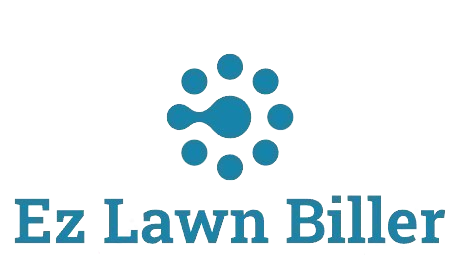The success of a business is often determined by its workforce. Strategic hiring ensures that organizations not only fill positions but also lay the foundation for sustainable growth.
The Importance of Strategic Hiring for Growth
In today’s rapidly evolving business environment, the importance of strategic hiring cannot be overstated. As organizations strive for growth, the focus must shift from simply filling vacancies to strategically attracting and retaining talent. This blog post will delve into the various aspects of strategic hiring and its pivotal role in fostering organizational growth. We will explore the challenges faced in the hiring process, the benefits of a well-thought-out hiring strategy, and practical tips for aligning hiring practices with business objectives.
Strategic hiring is about understanding the long-term goals of an organization and aligning recruitment efforts accordingly. When businesses approach hiring with a strategic mindset, they can identify the skills and qualities that will drive success, ensuring that every new hire contributes to the overall vision. This means looking beyond just qualifications and experience, and focusing on cultural fit, potential for growth, and alignment with company values.
Moreover, strategic hiring helps businesses build a strong employer brand, attract top talent, and reduce turnover rates. By investing in the right people, companies can create more cohesive teams, foster innovation, and ultimately achieve their growth objectives. In this article, we will examine the key components of strategic hiring, the impact it has on growth, and actionable strategies that can be implemented by organizations of all sizes.
Understanding the Need for Strategic Hiring
The first step in embracing strategic hiring is recognizing the common pitfalls associated with traditional hiring practices. Many businesses still approach recruitment as a transactional process, filling roles based solely on skills and experience rather than considering the broader context of the organization’s needs. This can lead to mismatches that not only affect team dynamics but also hinder overall business performance.
Statistics show that a poor hiring decision can cost a company significantly—estimates suggest it can be up to 30% of the employee’s first-year earnings. More than just financial losses, these mistakes can create a ripple effect, impacting team morale, productivity, and client satisfaction. For instance, in the lawn care industry, hiring the right technicians who not only possess the necessary skills but also align with the company’s values can significantly enhance service delivery and customer satisfaction.
Additionally, in a competitive job market, companies that fail to adopt a strategic approach may find it challenging to attract and retain qualified candidates. Organizations that prioritize cultural fit, potential for growth, and a clear understanding of their unique business goals tend to create more engaging workplace environments, which attract top talent. This aligns closely with the principles of effective lawn billing software, where the focus is on tailored solutions that meet specific business needs.
The Benefits of Strategic Hiring
One of the most significant advantages of strategic hiring is the ability to build a cohesive and competent team. When businesses take the time to assess their long-term goals and identify the skills and attributes needed in their workforce, they can recruit individuals who not only excel in their roles but also contribute to a positive organizational culture.
Moreover, strategic hiring enhances employee retention. Employees who feel aligned with their company’s mission and values are more likely to stay committed to their roles, reducing turnover and the associated costs of continuous recruitment and training. In the lawn care sector, for instance, having a consistent team of skilled technicians can lead to better service outcomes and customer loyalty.
Furthermore, a strategic hiring process encourages diversity and inclusion. By broadening the criteria for recruitment, companies can tap into a wider talent pool, fostering an environment of innovation and creativity. Diverse teams are known to outperform homogenous ones, leading to improved problem-solving and better business outcomes. Implementing a comprehensive lawn service software solution can further streamline the onboarding process, making it easier to integrate new hires into the team seamlessly.
Aligning Hiring Practices with Business Objectives
To truly leverage the benefits of strategic hiring, organizations must ensure their hiring practices are aligned with overall business objectives. This begins with a clear understanding of what those objectives are, which may include growth targets, market expansion, or enhanced customer service.
For example, if a lawn care business aims to expand its service offerings, it should focus on hiring individuals with diverse skill sets that complement its existing team. This might mean seeking out technicians with expertise in specialized services like irrigation or pest control. By aligning hiring practices with business goals, organizations can ensure that every new hire brings valuable skills that drive growth.
Additionally, implementing tools such as a comprehensive lawn service app can aid in tracking employee performance against business objectives. This data-driven approach enables businesses to make informed decisions about future hiring needs and ensures that the workforce remains aligned with the evolving goals of the organization.
Best Practices for Strategic Hiring
As companies seek to enhance their hiring strategies, several best practices can guide the process. First, it is crucial to develop a well-defined job description that outlines not only the required skills but also the desired soft skills and cultural fit. This clarity will help attract candidates who align with the company’s vision.
Second, consider leveraging technology to streamline the hiring process. Tools such as applicant tracking systems (ATS) can help manage candidate applications efficiently. Furthermore, utilizing a lawn company computer program can facilitate better communication between hiring managers and applicants, ensuring a smoother recruitment experience.
Moreover, incorporating assessment tools in the hiring process can provide valuable insights into a candidate’s potential fit within the organization. This can include skills assessments, personality tests, and situational judgment tests that evaluate how candidates might handle real-world scenarios relevant to the role.
The Role of Onboarding in Strategic Hiring
Strategic hiring does not end once a candidate is selected; effective onboarding plays a critical role in ensuring the success of new hires. A structured onboarding program that introduces new employees to company culture, processes, and their specific roles can greatly influence their long-term performance and retention.
Research shows that a strong onboarding process can improve employee retention by up to 82%. This is particularly important in the lawn care industry, where the quality of service is directly linked to employee engagement and satisfaction. By providing comprehensive training and resources, businesses can empower their new hires to deliver exceptional results from day one.
Additionally, utilizing a lawn service computer program during the onboarding process can facilitate training and resource sharing, ensuring that new technicians are well-equipped to meet client expectations. This alignment of skills with client needs can significantly enhance service delivery and customer satisfaction.
Evaluating Success: Metrics for Strategic Hiring
To gauge the effectiveness of strategic hiring practices, organizations should establish clear metrics that align with their business objectives. Key performance indicators (KPIs) such as employee turnover rates, time-to-hire, and employee satisfaction scores can provide valuable insights into the impact of hiring strategies.
Furthermore, tracking the performance of new hires over time can reveal how well they adapt to their roles and contribute to the team. For instance, measuring customer satisfaction scores for lawn care services can help identify which hires are delivering exceptional service and which may need additional support.
By regularly reviewing these metrics, businesses can refine their hiring strategies, ensuring they continue to attract and retain talent that drives growth. Understanding the return on investment (ROI) of hiring decisions is vital for justifying recruitment expenditures and improving the overall hiring process.
Future Trends in Strategic Hiring
The landscape of hiring is continually evolving, influenced by technological advancements and changing workforce dynamics. As remote work becomes more prevalent, businesses may need to adapt their hiring strategies to accommodate a wider talent pool, transcending geographic limitations.
Moreover, the integration of artificial intelligence (AI) in the recruitment process is set to revolutionize hiring practices. AI-driven tools can assist in screening applicants, predicting candidate success, and even enhancing the overall candidate experience. Companies that embrace these technologies will likely gain a competitive edge in attracting top talent.
Furthermore, an increasing focus on employee well-being and work-life balance is prompting organizations to rethink their hiring criteria. Candidates are now seeking employers that prioritize mental health, flexibility, and inclusivity. Therefore, businesses must adapt their value propositions to resonate with the evolving expectations of the workforce.
Conclusion
Strategic hiring is a critical component of business growth and sustainability. As organizations navigate a competitive landscape, the focus must shift toward attracting and retaining talent that aligns with long-term goals. By understanding the importance of strategic hiring, businesses can build cohesive teams, enhance employee retention, and improve overall performance.
Investing time and resources into developing a strategic hiring process not only mitigates the risks associated with poor hiring decisions but also fosters a company culture that attracts top talent and drives innovation. As businesses prepare for the future, embracing strategic hiring practices will be essential in achieving their growth objectives.
Ultimately, making informed hiring decisions today will lay the groundwork for a successful and sustainable future. By leveraging tools like [Lawn Biller Software](https://ezlawnbiller.com/) and employing best practices in recruitment and onboarding, businesses can ensure they are well-equipped to thrive in an ever-changing marketplace.




